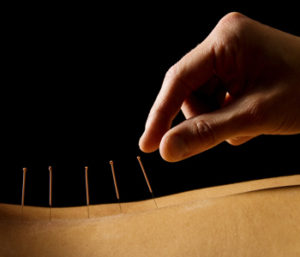 When people think of acupuncture they often think of a friend who used it for a knee injury or an aching back. Although acupuncture has many applications, pain control is one of its most popular uses. The exact mechanism of how it reduces pain is unknown. However, emerging studies are showing us more precisely what is happening in the body and how acupuncture can help you find relief.
When people think of acupuncture they often think of a friend who used it for a knee injury or an aching back. Although acupuncture has many applications, pain control is one of its most popular uses. The exact mechanism of how it reduces pain is unknown. However, emerging studies are showing us more precisely what is happening in the body and how acupuncture can help you find relief.
1. IT CHANGES HOW THE BODY RESPONDS TO PAIN
Acupuncture changes the way the central nervous system responds to pain by a phenomenon called neuroplasticity. Neuroscientists are discovering that with proper conditioning, the brain can help to reduce the perception of pain. In a comparison of 7 different studies consisting of both randomized controlled trials and nonrandomized studies, the findings concluded that acupuncture causes important changes in chronic pain states. It does this by changing pain-related connections of the central nervous system (Villarreal Santiago, M. et al). This means that acupuncture treatments encourage the body to reduce its sensitivity to pain. To learn more about neuroplasticity, see the following link: https://painhealth.csse.uwa.edu.au/neuroplasticity.html
2. IT BLOCKS THE BRAIN FROM RECEIVING PAIN SIGNALS
Opiate painkillers, such as morphine and codeine, work by interrupting the signals for pain received by the brain. They accomplish this by binding to opiate receptors. Studies are beginning to show that acupuncture also causes opiate peptides (a natural version of opiate painkillers) to bind to these same receptors. This means that it blocks the brain from receiving pain in the same way as synthetic painkillers. In a recent study performed on rats, opioids peptides were shown to be released with electro-acupuncture. The electro-acupuncture increased the gene expression of enkephalin, one of the three major opioid peptides produced by the body (Li, M. et al.). Enkephalin is closely related to endorphins and have potent painkilling ability.
3. IT RELAXES YOU
Whether it’s sore back muscles, an aching jaw or chronic headaches, those of us who suffer with long-term pain due to stress know how important relaxation is. In a study from the Journal of Endocrinology, rats were subjected to stress-inducing cold exposure for 10 days. The rats treated with acupuncture had significantly lower stress hormones in their system at the end of the trial (Eshkevari, L. et al). When we are feeling stressed our bodies tend to tighten (think of tight and sore back muscles, where many of us “hold stress”). Relaxing the mind and body are key to reducing this kind of pain. For some lucky people, the pain can even be reduced fully with a proper stress reduction plan. Acupuncture is a great option to consider in this case.
Acupuncture is capable of lowering or even eliminating the long-term intake of synthetic drugs for the 1 in 5 Canadians who suffer from chronic pain. Thanks to the scientific community, we are beginning to understand what proponents of acupuncture have been saying all along: it works!
References
Eshkevari, L. et al. Acupuncture blocks cold stress- induced increases in the hypothalamus–pituitary–adrenal axis in the rat. Journal of Endocrinology, 217(1), 95-104. doi: 10.1530/JOE-12-040
Li, M. et al. Repetitive Electroacupuncture Attenuates Cold-Induced Hypertension through Enkephalin in the Rostral Ventral Lateral Medulla. Sci. Rep. 6, 35791; doi: 10.1038/srep35791
Villarreal Santiago, M. et al. Does Acupuncture Alter Pain-related Functional Connectivity of the Central Nervous System? A Systematic Review. Journal of Acupuncture and Meridian Studies, Volume 9, Issue 4, 167 – 177. doi: 10.1016/j.jams.2015.11.038
